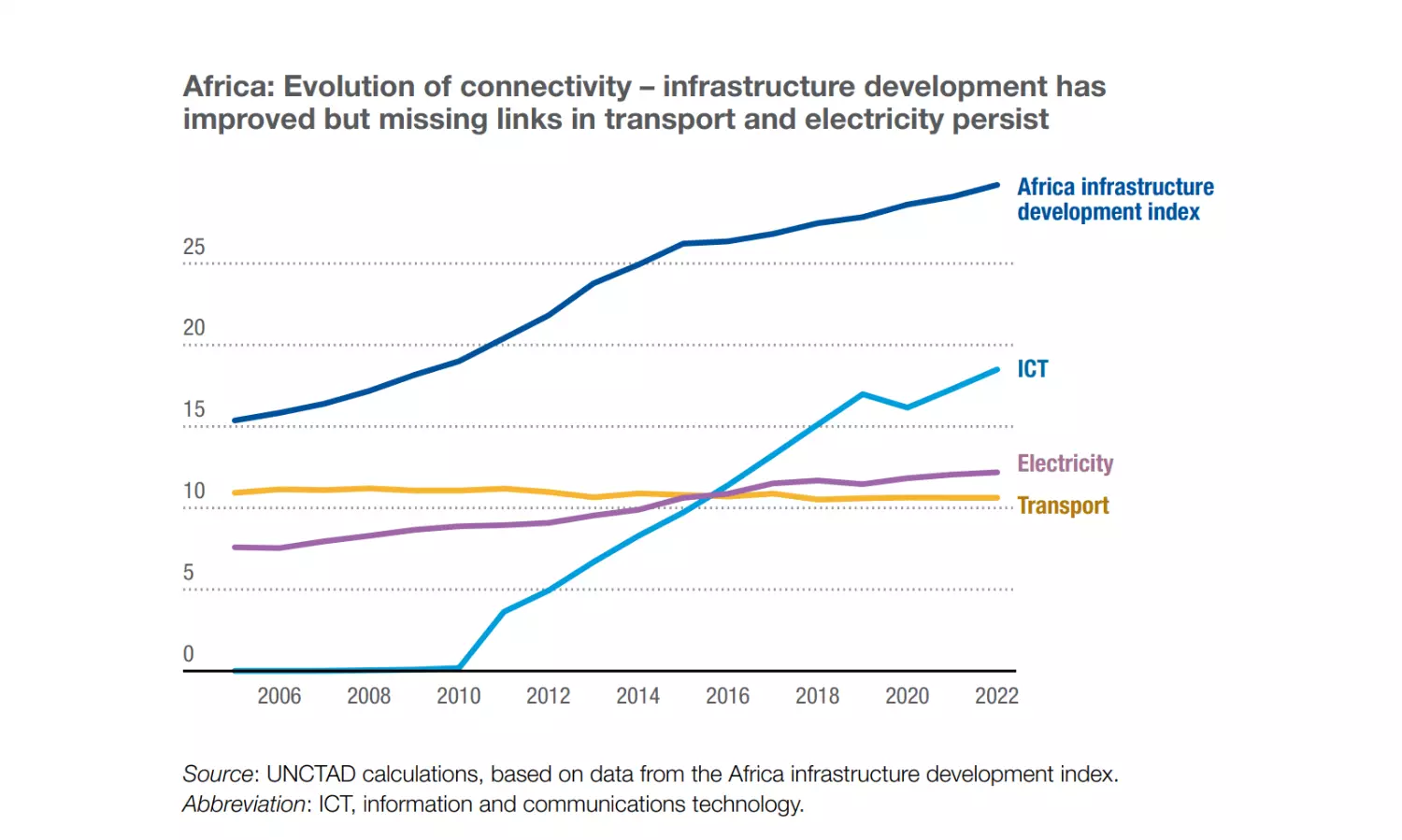Africa must build strong regional trade network, diversify supply chain
Africa’s shipping rates in 2024 remain 115% above pre-pandemic levels and double the 2023 average, making the movement of goods prohibitively expensive for businesses reliant on global markets.

Despite some progress, transportation infrastructure in Africa remains among the weakest globally. Landlocked nations, in particular, face logistics costs up to 50% higher than coastal economies, limiting their ability to compete in global markets.
Soaring shipping costs, weak intra-African trade linkages, and infrastructure deficits continue to hamper economic resilience according to the newly released Economic Development in Africa Report 2024 from UN Trade and Development (UNCTAD) which presents a stark reality for Africa’s logistics and supply chain landscape.
The report, titled Unlocking Africa’s Trade Potential: Boosting Regional Markets and Reducing Risks, underscores the urgent need for regional market integration, infrastructure investment, and supply chain diversification to shield African economies from external shocks.
UNCTAD Secretary-General Rebeca Grynspan, wrote, “The world is in polycrisis, and Africa is on the front line of exposure. Recent crises have hit the continent disproportionately. Building resilience will allow the continent to reap the many opportunities offered by its future.”
According to UNCTAD, Africa’s shipping rates in 2024 remain 115% above pre-pandemic levels and double the 2023 average, making the movement of goods prohibitively expensive for businesses reliant on global markets.
This price surge is compounded by weak intra-African trade connectivity, with only 16 out of 54 countries sourcing more than 0.5% of their intermediate goods from within the continent. This dependency on foreign inputs significantly limits the resilience of African supply chains.
The African Continental Free Trade Area (AfCFTA) is seen as a potential game-changer, but infrastructure and regulatory hurdles continue to impede its full realization.
“Better connectivity within Africa is a necessity, not a luxury. Without significant investment in logistics and transport corridors, businesses will continue to struggle with trade costs that are among the highest in the world,” the report warns.
Despite some progress, transportation infrastructure in Africa remains among the weakest globally. Landlocked nations, in particular, face logistics costs up to 50% higher than coastal economies, limiting their ability to compete in global markets.
“Transport costs are among the highest globally, often due to underdeveloped road networks and inefficient logistics. For example, poor connectivity means road transport costs accounts for about 29% of the price of goods traded within Africa, compared to just 7% for those traded outside the continent,” it reads.
Another major barrier is non-tariff trade costs, which are estimated to restrict intra-African trade three times more than standard customs tariffs. These costs range from 135% within the East African Community (EAC) to 283% in the Common Market for Eastern and Southern Africa (COMESA), significantly hindering regional supply chain integration.
Africa’s foreign direct investment (FDI) fell by 3% in 2023, reflecting investor concerns over economic and political instability. However, a noteworthy shift is emerging, with 20% of Africa’s international investment projects in 2023 being financed by African investors themselves. This signals growing intra-African confidence but also highlights the urgent need for robust risk management strategies.
The report outlines key policy recommendations, urging governments to enhance trade facilitation, invest in regional infrastructure, and support businesses with financial risk-management tools. “Africa’s logistics sector must move from being a vulnerability to being a strength. Strategic investments in connectivity and trade finance mechanisms can ensure that supply chains remain functional even during global disruptions,” the report concludes.
For African businesses and logistics providers, the challenge is clear: reducing dependence on global supply chains, strengthening regional trade corridors, and leveraging AfCFTA to create more self-sustaining trade networks. Without these changes, Africa’s exposure to global trade shocks will continue to derail long-term economic growth.


